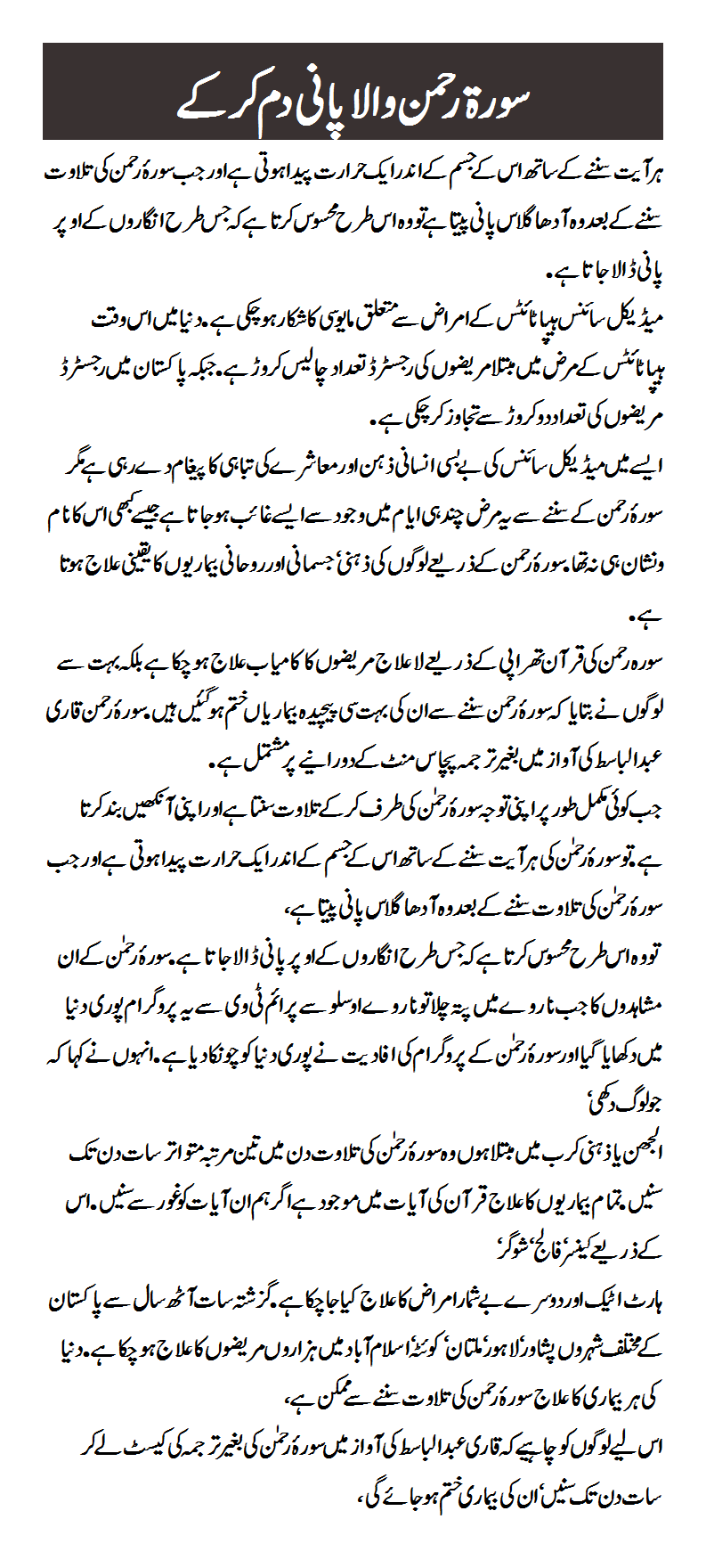Hafiz Abbas, 22, a resident of Rajgarh, consumed wheat poisoning pill on Feb 19 and was brought to the ICU (intensive care unit) of the Services Hospital, Lahore. Usually doctors consider such cases as ‘hopeless’ given the survival rate of such patients, which is only 10 per cent.
The patient’s organs like liver, pancreas, kidneys and heart were deteriorating but an on-duty doctor, Dr Muhammad Javed, took it as a challenge and started treatment.
“During six-hour struggle, the patient was treated with 150 electric shocks to keep his heart beating. His stomach and kidneys were washed and with the help of supporting treatment, he came out of unconsciousness.
“I’ve never seen any patient whose heart beat stops 150 times and is resuscitated by as many electric shocks,” says Dr Javed.The result may be surprising for other doctors but Dr Javed was sure what worked in the case.
It was not any medicine but recitation of the glorious verses from the Holy Quran that did the miracle.“During the treatment of Abbas, Surah Al-Rehman was continuously played by his bedside and this worked as a wonder antidote,” he said.
Interestingly, Dr Javed is neither a cleric nor a faith-healer. He has a distinguished record as a medical practitioner as his visiting card shows — MBBS, FCPS (Pakistan), FCCS (USA) and FDM (USA). Currently, he is the head of the Services Hospital’s ICU and a consultant physician and intensivist.
After staying in the ICU for three weeks, Hafiz Abbas is no more on medication and is leading a normal life. He listens to Surah Al-Rehman three times a day, as advised by his doctor.
Dr Javed not only prescribes this ‘surah’ to his patients and trainee doctors who work with him at the ward, he wants all medical practitioners to follow the divine antidote. He plays the recitation of the ‘surah’ on a cassette player in the ward three times a day, which he calls doses that strengthen the willpower of patients.
According to him several patients of epilepsy, brain haemorrhage and organ failures have shown unbelievable recovery because of the ‘surah’.

“I really don’t know how listening to these golden words works in the recovery of patients but my results say that this chapter of the Holy Quran not only works but works wonders,” he says. He tries to make his point through data of patients he has treated in the hospital.
During his four-year stint at the ICU of the Services Hospital, he has treated 96 cases of wheat pill cases and 75 of them survived the poison.
According to the data available on the Internet, the mortality rate of those consuming aluminium phosphide (what a wheat pill contains) in European and American hospitals is 90 to 100 per cent.
Dr Javed conducted research in 10 public and as many private hospitals of the city on mortalities due to the pill which is available over the counter in every street store in the country.
He distributed a questionnaire among specialists and non-specialist doctors. Up to 90 per cent of the doctors said they had encountered more than 10 wheat pill patients in their service.
The usual outcome or prognosis, 90 per cent of the respondents say, was that more than 90 per cent of the patients died.The research also highlighted some startling facts:
most of the doctors are unaware of the composition of the wheat pills. “When they don’t know what a pill contains, the treatment they provide to the patient multiplies risk of death,” he says.